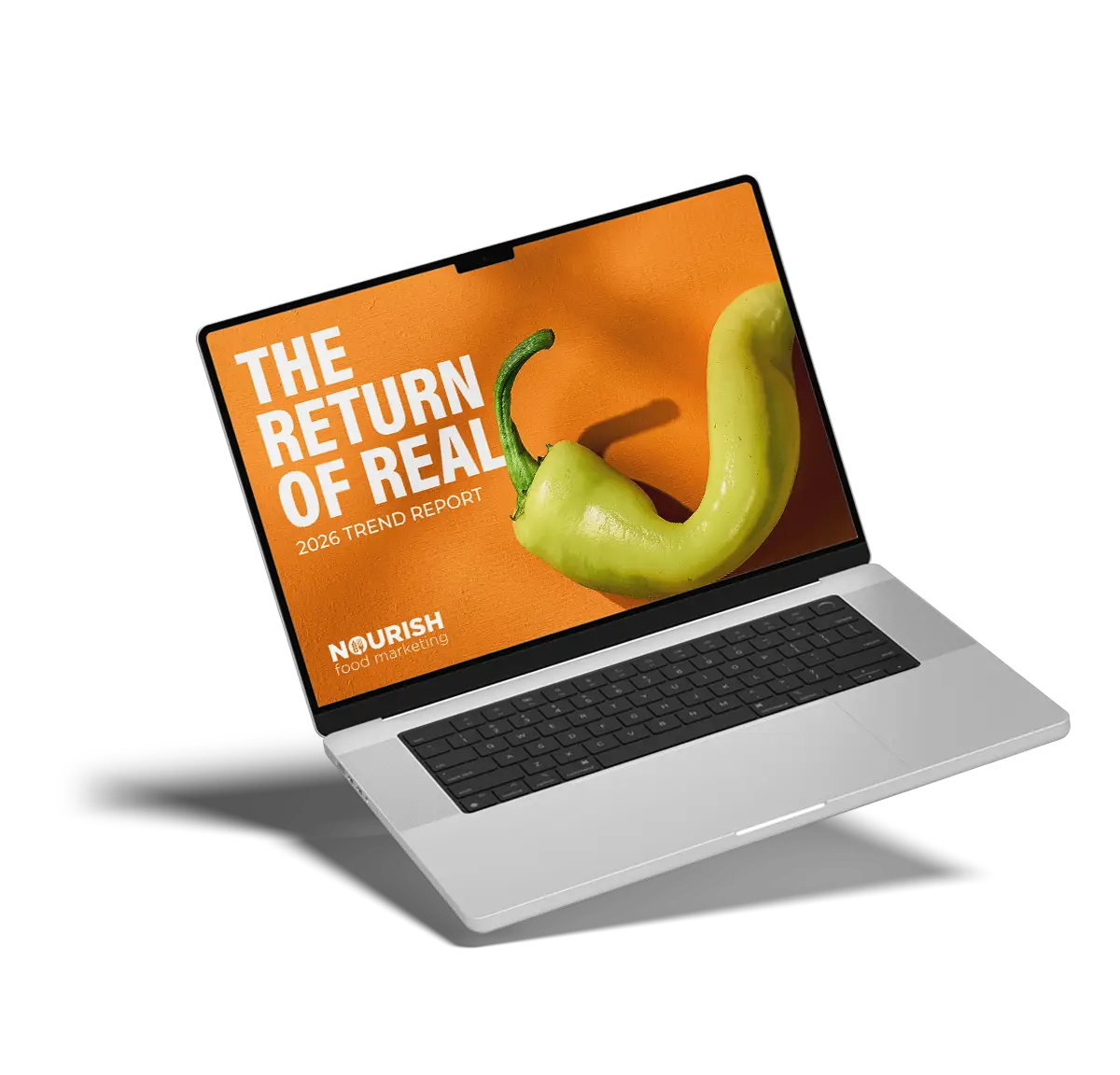By Jo-Ann McArthur
Fewer and fewer consumers make January a time for New Year's resolutions, and most businesses rely on business plans in place of them. Maybe in place of largely recycled business plans, we should introduce January as a month for "fresh thinking." That’s not to be confused with “A New Way of Thinking,” our AI trend from the 2024 Nourish Trend Report, although AI undoubtedly has a role to play.
Over the holidays, I read Walter Isaacson's biography of Elon Musk, and I was struck by how Elon continually questioned conventional wisdom while also taking calculated risks that allowed him to either fail or succeed fast—whatever the result, he gained important feedback that moved the project ahead. Why can't rockets be reusable? Why can't electric cars provide a superior driving experience?
It’s Time to Ditch the Legacy Thinking, F&B
It reminded me of some old saws I hear in Grocery and CPG-land. You can paraphrase most of them as “Because it's always been done that way;” that is legacy thinking. "Because" is not a proper answer to "why?" With that as your guiding principle, it's only a matter of time before you get disrupted.
Musk brings a beginner's mind—plus a solid understanding of physics and how the world works—when looking at industries and problems. His Algorithm for the production of anything has Five Commandments. The first is "Question every requirement," which includes knowing the name of the person who made it. No "The Marketing Department says…" is allowed. You need to know where the requirement came from to understand the why and then push back with data. The second commandment is "Delete any part or process you can. You may have to add them back later. In fact, if you do not end up adding back at least 10% of them, then you didn't delete enough." I'll let you read the book to discover the other three commandments.
And it’s Time to Lose that Crown, Pineapples!
In a similar vein, I also caught up on my non-urgent inbox reading and was struck by this substack article on the crownless pineapple. Why do we ship pineapples with their crown attached from the field to the supermarket when the consumer immediately throws them away? (And they do NOT play nice with kitchen compost bags.)
That crown takes up a lot of shipping space and covers many miles for no added utility except an aesthetic one. The article says that if you cut the tops off of pineapples before shipping them, you slash their carbon footprint by nearly a third due to less weight, less cardboard, and easier handling; you increase margins; and generate an excellent sustainability story you can share.
There are no technical obstacles since pineapples sourced for pre-cut at the grocery store are already shipped crownless. The only obstacle is an experienced pineapple buyer at Grocery "believing" that shoppers don't want crownless pineapples. I'm sure someone in Produce once thought the same thing about carrots! Now, it's seen as a value-add. (As a follow-up, UK grocer Sainsbury’s started offering crownless pineapples in November 2023.)
The crownless pineapple is also a great example of why the whole systems approach is required to reduce carbon footprints and unlock savings across the supply chain. Along the way, we need to challenge those pieces of conventional wisdom. Maybe a good resolution is to see if they hold up to scrutiny in 2024. You might be surprised how much “wisdom” is merely “tradition.” And in business, clinging to tradition is a direct route to stagnation—perhaps via single-use rockets.
